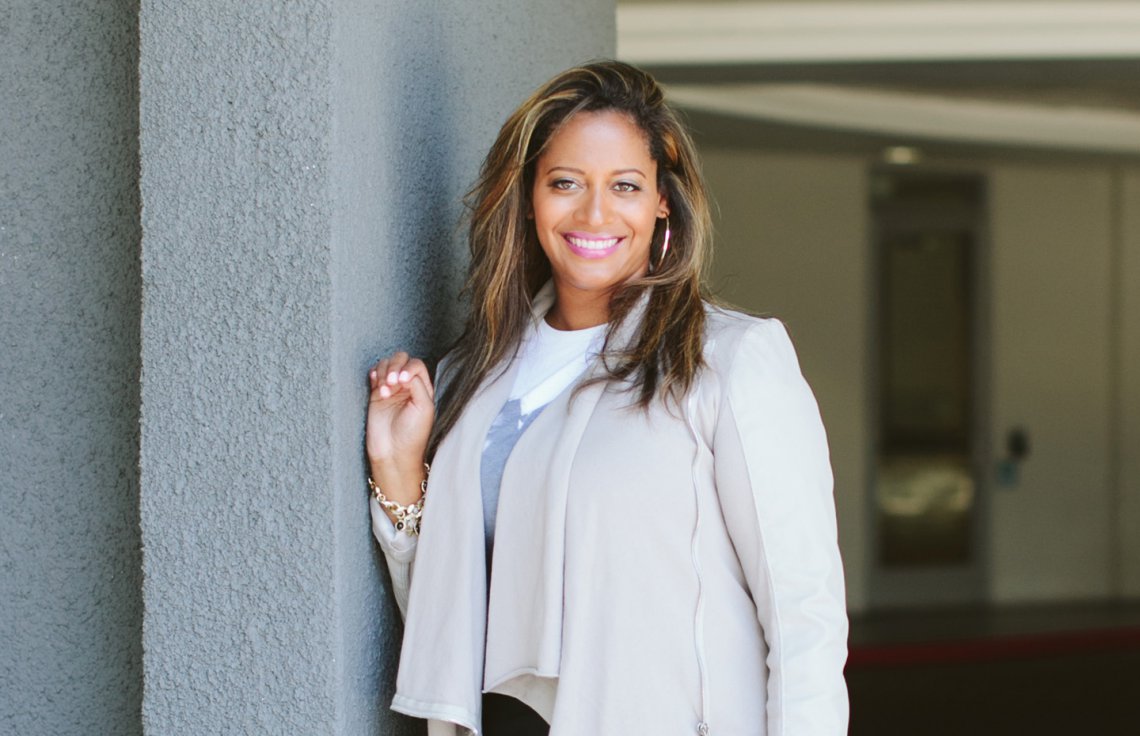With a corporate, civil rights and environmental lawyer for a father, it’s no surprise that Candace J. Rodney’s familiarity and comfort with the language of law started early. However, it wasn’t until her college years in Atlanta’s burgeoning music industry when she learned to merge her love for entertainment with her innate talent for legal negotiation—a unique blend that she cultivates to this day.
Candace, 32, is now the director for Pay Television, part of Sony Pictures Television. While she may dip into drafting up contracts for major television shows on occasion, she mainly generates revenue by looking for all of the possible opportunities that television can be distributed. At a company that values its employees as much as Sony, Candace considers her work rewarding and a continual learning experience, of which we were easily able to pick on.
Though improving her salesmanship skills has posed a challenge, Candace’s aptitude for adaptability, creative problem solving and strong negotiating skills have taken her far in each position she has held—and we have little doubt that they will continue to do so as she follows the future-forward trajectory of the television industry as a whole.
Her Starting Point
Many people find the transition between college and “real life” a bit daunting. Can you tell us a little bit about your journey between the two? What was your first job out of college?
My first job out of college was with the United States Senate. I was blessed with being offered a Staff Assistant position with Senator John Breaux of Louisiana who was a member of Congress for over 31 years. In that position I received a broad based overview of the interworking of Congress and the Senate particularly. In my experience, it was no House of Cards!
The opportunity was both extremely exciting and rewarding, as becoming a “hill staffer” was a coveted position. I experienced many challenges, few relating to the roll in Senator Breaux’s office. For me it was the transition from student to self-sufficient adult that was sometimes difficult; moving to a new city, being fully responsible for expenses, building a network, etc. I initially relied on friends of my parents who lived in the area. Eventually finding comfort in the family feel of my office and the hill in general. I experienced great personal growth and developed friendships that I cherish. Many of my hill colleagues are now top lobbyist, lawyers and even the right hand to First Lady Michelle Obama. I am very proud of them!
When did your passion for entertainment law first begin, and what were the first steps in establishing yourself as a pro?
I believe I was destined to attend college in Atlanta. During my college tenure, the music industry in Atlanta was ripe and swiftly growing. My university was known for its Mass Communications program, so I was exposed to the entertainment industry at a peak opportunity. I’ve always been a super fan of all things entertainment, first having ambitions of becoming a film editor. I must have watched Pulp Fiction over 100 times, putting that movie in chronological order in my mind.
Part of my Radio/TV/Film curriculum was an internship requirement. Through a great friend Alisha Bell, I was referred to the 8 Ways Entertainment office which represented hip hop icons 8Ball and MJG. I worked under the supervision of the label’s manager and seasoned music executive Maurice “Moetown” Lee, who is still one of my mentors to this day. My responsibilities included coordinating Ball and G’s appearance and performance schedule, updating the artist riders, coordinating radio interviews, etc., which were all done in conjunction with the label’s outside counsel James McMillan.
My dad is an extraordinary corporate, civil rights and environmental lawyer so I think the law is in my DNA. I excelled in the above-mentioned tasks, and gained my first glimpse of having the ability to merge the love of entertainment with the familiarity of law.
You’ve represented and negotiated on behalf of some pretty big names—Derek Jeter, Dwayne Wade, Cristiano Renaldo—as well as the production teams behind shows like Mad Men, Orange is the New Black and Nashville. How have these partnerships changed the scope of your career?
I’m a lucky girl. For the sake of clarity, my experience with the above listed individuals and shows were through the Business and Legal Affairs departments at Creative Artists Agency and Lionsgate Television. Both were game changing experiences. I left the United States Senate to attend law school at Loyola in my hometown of New Orleans. After experiencing Hurricane Katrina during my law school tenure, I graduated with a law degree and the burden of starting over. I knew at that time, in order to maximize entertainment opportunities I needed to put myself in a position where I could excel. So, I decided to move to New York; landing an opportunity as part of CAA Sports’ Business and Legal Affairs department was a lifeline. I really credit the fast-paced agency environment and training at CAA for my success. If you have entertainment aspirations, agency experience is the boot camp for the entertainment professional. I trained under a phenomenal sports lawyer Terry Prince, where I became proficient in drafting and negotiating sports and entertainment deals on-the-field and off-the-field, including appearance, sponsorships, licensing, memorabilia, event, franchising and broadcasting agreements. I had the opportunity to interface with other CAA departments and interact with top industry figures and talent. Although I loved my job and experience at CAA, I started to get the television itch.
As a long standing Netflix customer, I started seeing movement in television that I didn’t recognize in music or sports. Television was in a forward progression. It found a way to monetize and embrace the digital advances and behavioral shift of customers. I wanted to be a part of that business. Once again, I made a strategic choice to move to Los Angeles to pursue opportunities in television. When I was offered a consultancy at Lionsgate Television, I received great criticism. The salary is what? But you’re an attorney? What’s your title? Despite the criticism, I took the opportunity, and it was one of the best choices I’ve made in my career. Industry success begins with “getting your foot in the door” and that was my goal. I accepted a two week consulting opportunity and transformed it into a long term position where I was now drafting and negotiating agreements for some of the biggest shows on television. Lionsgate Television’s production business and legal affairs team mentored me and inspired me to jump head first into the television business. I had my hands on everything, and with an open door policy I was able to learn as much as I could about the television production and development space. Including, how to calculate profit definitions based on modified adjusted gross receipts…something many lawyers still can’t do. I remember feeling really proud of myself. I learned much and am so thankful for Sandra, Dan, Matthew, Hannah, Ashley, David and Brian…if it weren’t for their training and support there would be no me at Sony Pictures Television.
What do you love most about working at Sony Pictures Television? Can you tell us a little bit about the company culture?
Uh, everything! It really is a magical place. Like Disneyworld for the entertainment professional. Through the leadership and guidance of Thanda Belker, Sony Pictures Television has afforded me the understanding of the television business from a 360° view. My time at Lionsgate Television was about maximizing opportunity to get a television show made and sold. My job at Sony Pictures Television is all about maximizing distribution opportunity.TV everywhere! For the first time I’m in a revenue generating position, and not just a value holding position. I am closing the largest deals of my career and providing the television community viewing choices.
Sony Pictures Television is unique because the company culture is like no other. The employees are valued. We have superb “bench strength”. The company often promotes from within and talent is identified and cultivated. Sony Pictures Television also fosters an environment where you have a work/life balance, which definitely wasn’t present at times in my career.
Her Big Break
How do you stay organized? What tools/resources do you utilize (ie. iPhone, apps, etc.)? What skills are essential to do your job well?
The ability to stay organized and multi-task is a strong suit of mine. My sister jokes that I have OCD. She’s probably right! I rely heavily on calculators and calendars, which I access in many forms (via blackberry, android phone, and good ol’ date book). Seriously, I track everything… multi-million dollar deals, my meetings, my meals, exercise, hours of sleep, etc. I feel that a rejuvenated mind, body and spirit are essential if I am to reach my highest potential.
All of my jobs have been extremely analytical and multifaceted, but they all have the same skill sets in common. You must be a highly adaptable, creative problem solver, skilled communicator, strong negotiator and consensus-builder, self-driven and goal focused. The ability to easily forge collaborative relationships with key clients, industry leaders, and strategic partners is key. I’ve also always worked as a member of a team, so the ability to contribute as a team player and interact with professionals of all levels is paramount.
Of all the TV shows you’ve worked on, which has been your favorite and why?
Hands down, Orange is the New Black! It was a popular book when I started working on that show; one with many complex legal intricacies because it was based on the life and experience of real people. It was a new show for Lionsgate Television, so I was exposed to the various steps in the television development process. It also stands out because of the partnership with Netflix. Orange is the New Black, was part of the freshman class of series (e.g., House of Cards, Arrested Development, etc.) that moved Netflix from a home video provider/SVOD service to a real contender of original programming. As demonstrated throughout this year’s award season.
If we had the chance to peek at your schedule, what would an average day look like?
Morning routine. Rolling calls to the office from my car. Emails, meetings, meetings, conference call, pricing analysis, deal brokering, deal brokering, conference call, deal brokering. Breathe. Gym. Emails, emails, emails. Rolling calls in the car. Breathe. Class. Sleep. Ha! That’s an average day.
What is the most challenging part of your job? How do you keep yourself from getting burnt out?
Salesmanship. Most of my experience comes from the legal world, so moving to a business position was quite a feat. Although I still draft and/or negotiate a few of my deals, my Sony Pictures Television job has a sales element that is completely new to me. Communication and pitching product, stunts, ideas, features and shows to clients (especially to clients who know what they want and know our content) is a skill. It’s a skill that I am always conscious of and striving to improve. I’ve recently enrolled myself in an improv class hoping to improve my ability to think quickly and sharply.
I get burnt out sometimes, but everyone needs a reboot. I truly love what I do. I couldn’t see myself working in any other industry. When the fatigue starts to creep in that’s when I know I’m overdue for some rest and relaxation, preferably on a beach.
Her Perspective
What skills are essential to working as a lawyer? Do you think having an industry niche is important?
Having an industry niche is so important. We live in a short attention span, condensed information, all reward and minimal effort kind of world. Unfortunately, there are so many individuals including lawyers who are self proclaimed experts without the requisite knowledge base and effort. Our industry is changing. With legal forms and templates accessible on the internet, it’s easy for individuals to think they can handle legal matters with minimal effort. A form file or a website generating legal documents isn’t always sufficient, especially in the area of entertainment where the deal is in the details. Artists, it is essential for you to consult an experienced lawyer to ensure your work is protected. I am often solving issues for client’s that could have easily been avoided (saving them time and money), had they made informed initial decisions.
A great lawyer is a great listener, actor, problem solver, detective, and negotiator. It’s all about context. I learned this lesson when negotiating a talent and escrow agreement for a major feature film deal. Without exposing any confidential information to my dad, I asked him for advice on a redacted contract I created for the talent. I knew I had everything in order, my agreement was solid…I even followed a major studio form provided by a colleague. After reading my agreement he said to me, “Candace, you don’t know what will work right, until you know what went wrong.” It was a lesson in context. See I was lacking the due diligence. As a lawyer, it is your duty to know what works (industry standard and customs) and what went wrong (research case law, attend specialize legal symposiums, review disputes). Sure enough, just a little case law research revealed one of the provisions I drafted was proven insufficient by the New York courts. Forms should be a guide, but not a substitute or shortcut to due diligence. Otherwise, you’re just copying without a firm grasp on what the language means or knowledge that the law or standards have changed. Context is needed, which is what you get from niche practices.
Translating passion into a career is tough. What advice would you give to women trying to figure this out?
Wow, I would pass on words of wisdom given me by my awesome parents! When finding your passion you must first find your place of quiet or peace. Your passion is usually that thing you first fell in love with. Your passion isn’t hindered by the thoughts of bills, responsibilities, etc. It’s pure. It is the path by which one discovers their purpose. Your thinking must be fearless and all of life’s occurrences and challenges must be put aside in order for you to identify it. That’s a difficult task as we women, tend to carry the burden of the world on our shoulders. However, it is not an impossible one.
I also view passion as an active word. It requires action, not just a “thought” but a “do”. So if you are thinking that something may be of interest. Try it out, “do” it! Don’t be afraid to intern. Take a class. Shadow someone. Don’t be afraid of change. Don’t be afraid of temporary discomfort. Please “do” everything necessary to determine if your hobby, dream, passion can actually become a fulfilling career.
Work hours can be stressful. How do you keep yourself balanced throughout the day? Are there any routines that get you jazzed for the day?
I definitely have a morning routine. Each morning, I allow myself five minutes of thankful reflection. Then it’s time to rock! The John Mayer or Kendrick Lamar Pandora station is next. I love their music…they get me moving. I do a little funny dance before walking out the door. It’s usually the Michael Jackson Moonwalk or Miley Cyrus Twerk; affirming self love and having a little quirky fun. Lawyers are silly too! Throughout the day I catch a gym session at Sony’s Athletic Club. I often “woo-saaaa” by taking a walk around the lot, or listening to UCLA’s free guided meditations. I am forever striving for balance.
What, if anything, do you wish you had known before entering the entertainment industry?
After thinking about this question for a while…hmmm, I knew it would be hard, I knew networking was important, I knew it would be exciting.
Maybe evaluating if it’s all worth it. Yes, that would be the question. Is it worth it? Entertainment will challenge you in ways that many professions do not. I definitely could have chosen an easier field. You are on call 24/7.
Unfortunately, egos and unique personalities run rampant. I never once asked myself if it is worth the sacrifice of living in expensive cities far from family and friends; missing birthdays and weddings; dealing with time zone differences and saying friendly hellos only while rolling calls. The lifestyle I’m describing has become the standard to be successful in entertainment. It is my present circumstance but is not my permanent condition. I can and will endure temporary inconveniences to reach personal and professional goals, forever seeking balance. For me, for now it is worth it!
And finally, what do you wake up looking forward to? What’s next for your career?
I wake up every day striving to be better; to be a better daughter, sister, friend, employee, and person. I wake up for progress and for change. I wake up to give, to share, to love.
With me there will always be a next. I have a few things up my sleeves. Several 2014 vision board goals I will achieve. I’ve learned to talk less and do more. You will see me again!
You May Also Like
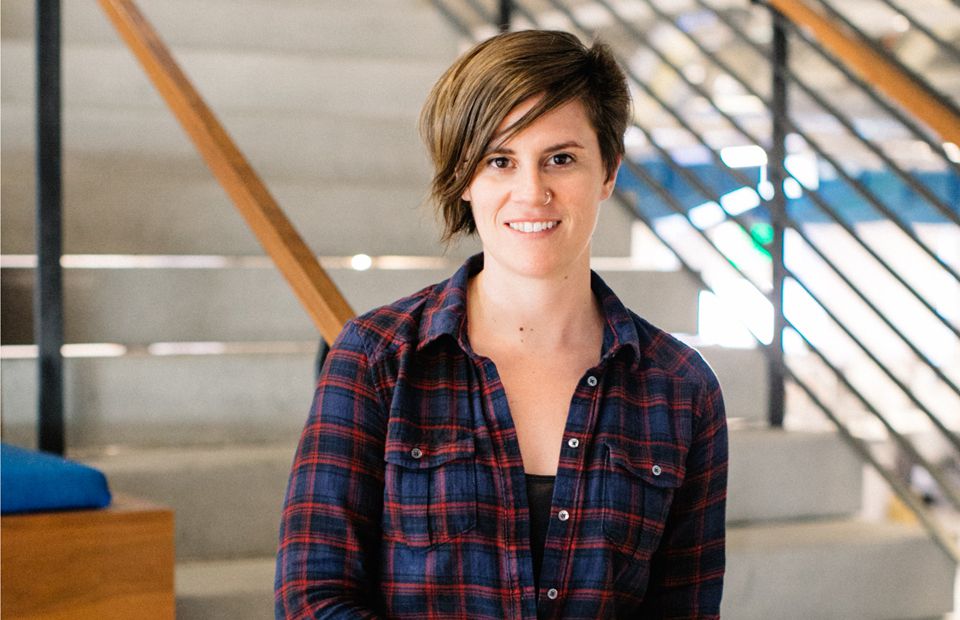
Media
How to Use Positive Reinforcement at Work—and Other Advice from a Pandora PM
"My advice to anyone who wants to get into product management is: check your ego at the door."
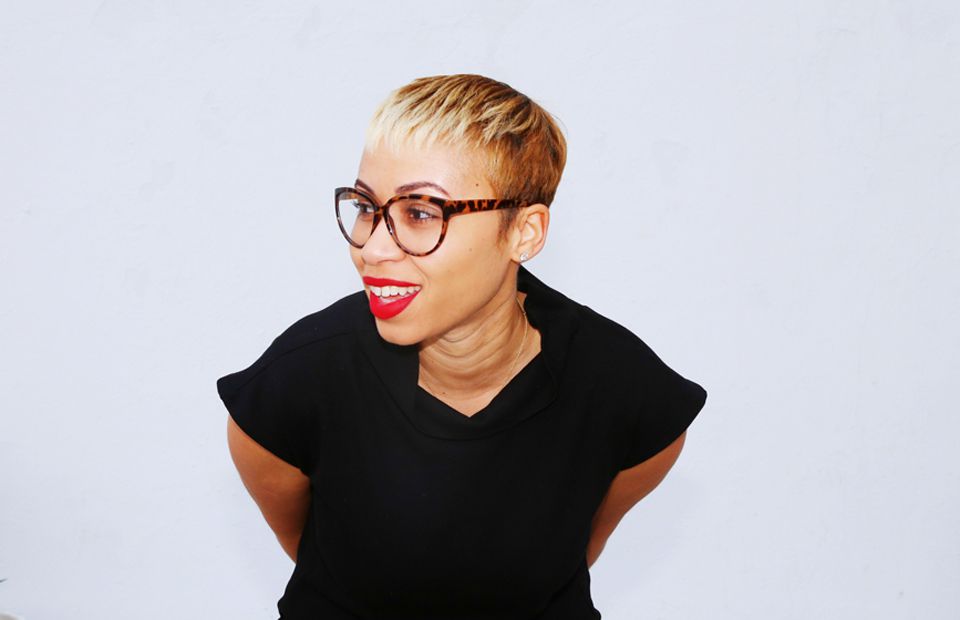
Media, Communications + Public Relations
How to Take Risks, Make a Switch, and Find a Career You Love—From a Woman Who's Done It 4 Times
Making your wildest dreams come true starts with understanding yourself—and Ahyiana Angel can help.
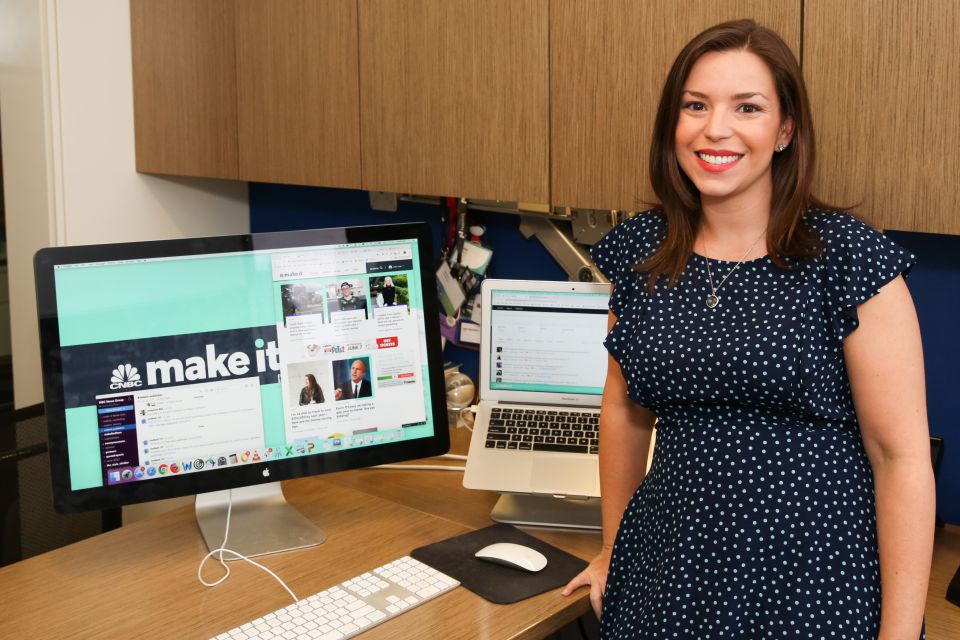
Communications + Public Relations
Creating Content That Empowers Audiences with CNBC's Digital VP and Managing Editor
This week, we interviewed Jenna Goudreau, the VP and managing editor of CNBC Digital. Let's learn how she keeps her powerhouse content creation machine going.
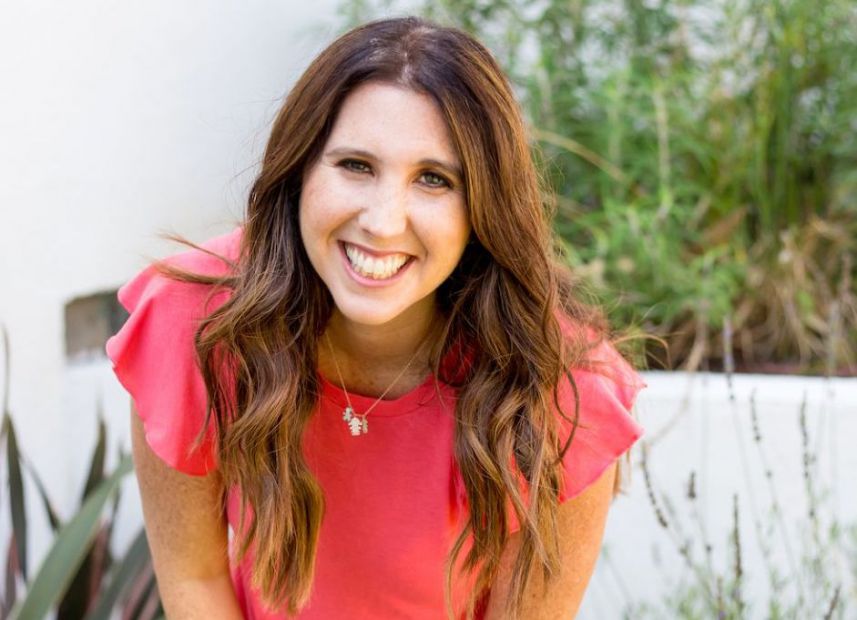
Entertainment
Working Creatively From Home with Cathy Heller
Cathy Heller is a singer, songwriter, entrepreneur, mother—and now, an author. Determined to lift others up to the "happiest versions of themselves," this queen of the hyphenated job title, leads by example. She shared how to build a fulfilling career in a creative field—all while working from home.
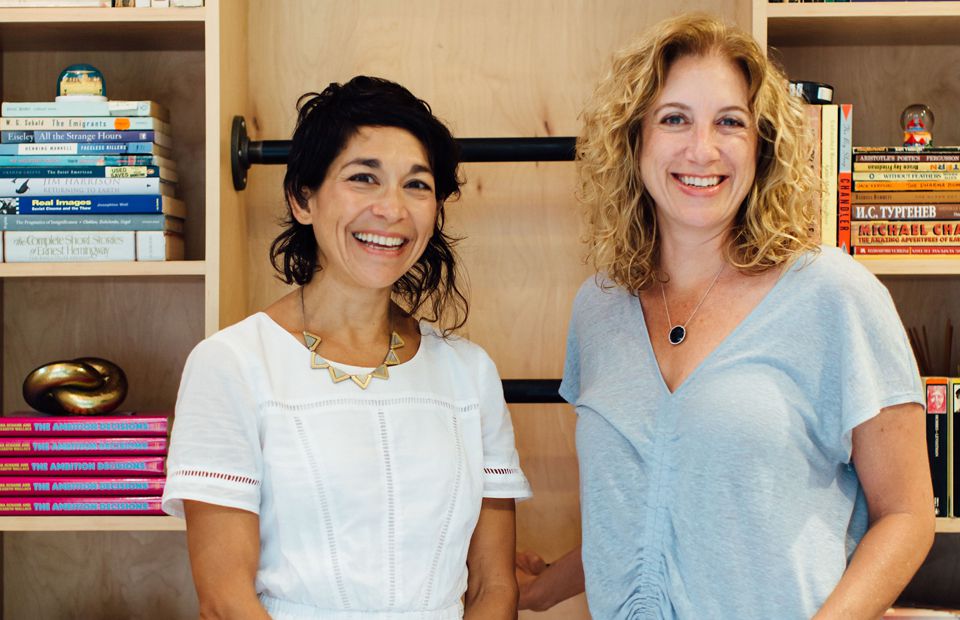
Media
Women, Work, and What It's Like to Write With Your Best Friend—From the Authors of The Ambition Decisions
"We should all give ourselves permission to challenge the things we think can’t be challenged."
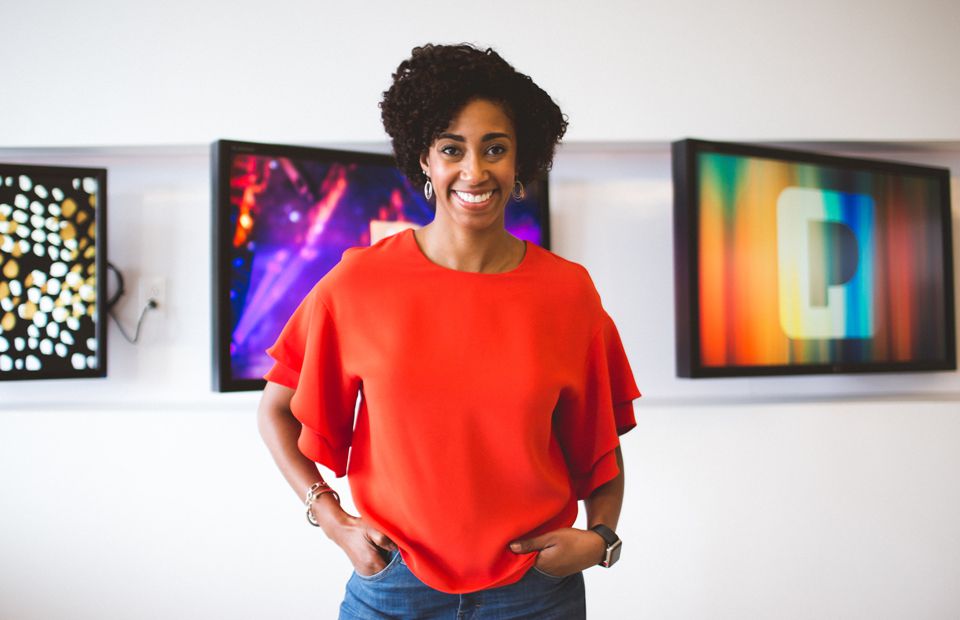
Media
A Director at Pandora on Staying Present, Celebrating Others, and Learning From Failure
"Share your wins, but most importantly, share what your growth areas are, share when you fail, share how you bounced back."
Get the Best Career Advice Delivered To Your Inbox
Join our newsletter to stay in the loop.
